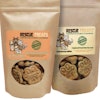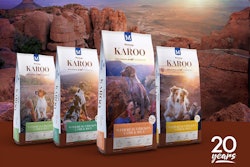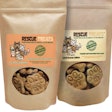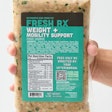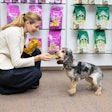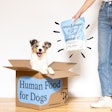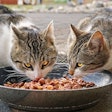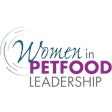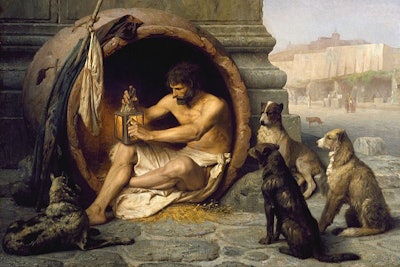
Many people in the pet food industry agree with Cynics, especially in their deep respect for dogs’ virtues.
Cynical attitudes may be rife in the modern world, as seemingly insoluble problems breed world-weary pessimism. Ancient Greek and Roman philosophers lived in a world suffering from plague, cruelty and injustice too, but they became a different type of Cynic. The word cynic comes from the old Greek word for dog, and several historical connections tied the philosophers to dogs. Regardless of how the name came about, Cynics liked dogs and were dog-like.
These Cynics made virtues of qualities observed in dogs, including practicality, indifference to social mores and general shamelessness regarding bodily functions. A gold ring, diploma or political title means nothing to a dog, likewise Cynics rejected the social conventions of status and wealth. Dogs remain unpretentious among human vanities. How many freshly groomed dogs have immediately, shamelessly rolled on a dead worm? A homeless man’s dog will stay with him even if a millionaire calls the dog’s name. One of the first Cynic philosophers, Diogenes, lived in an old tub, wore rags and pooped in public, but he didn’t hesitate to tell Alexander the Great to step out of the philosophers’ rays while he basked.
Pet food professionals aren’t quite that unfazed by authority, and the pursuit of wealth is certainly part of the game, but dogs’ virtues aren’t lost to the industry. During the past few years, as I’ve covered the industry, animal lovers seem the norm among pet food professionals. Almost everyone I’ve met or interviewed has respected the virtues of dogs, cats and other pets, as a Cynic may have. For example, dogs guard those they love, and despite modern cynics decrying Big Pet Food, most people I know in the industry genuinely want to take care of the animals they love.
Humanization of pet food and Cynic philosophy
Probably because of that love, modern people project their own attitudes onto dogs, in a way that might have made Diogenes growl. Not that he wasn’t also egregiously guilty of assuming he understood dog psychology. Cynics admired dogs’ tendency to survive on scraps and live on the streets. Keeping dogs and cats off the streets and well fed is a positive improvement over the Classical Era. However, people have humanized dog’s dietary desires to match our own. For example, in the United Kingdom, 42% of dog and cat owners considered their pet a “foodie” in a survey by Mintel. However, it was dogs’ lack of pretensions that drew admiration from Cynics. While many humanized dog diets provide excellent, safe nutrition, they also cloud our understanding of dogs’ minds and bodies with reflections of our own. Canines don’t care about keto.
Dogs haven’t internalized these human beliefs. Many a purebred show dog will dine on feces or roadkill more readily than some people will eat carbs. Dogs remain Cynics.
Perhaps a Cynic’s appreciation for dogs could lead to pet food marketing strategies. These strategies could focus on canine virtues, like unpretentiousness and humility, to educate consumers about pet food ingredients rejected by human trends and marketing.

